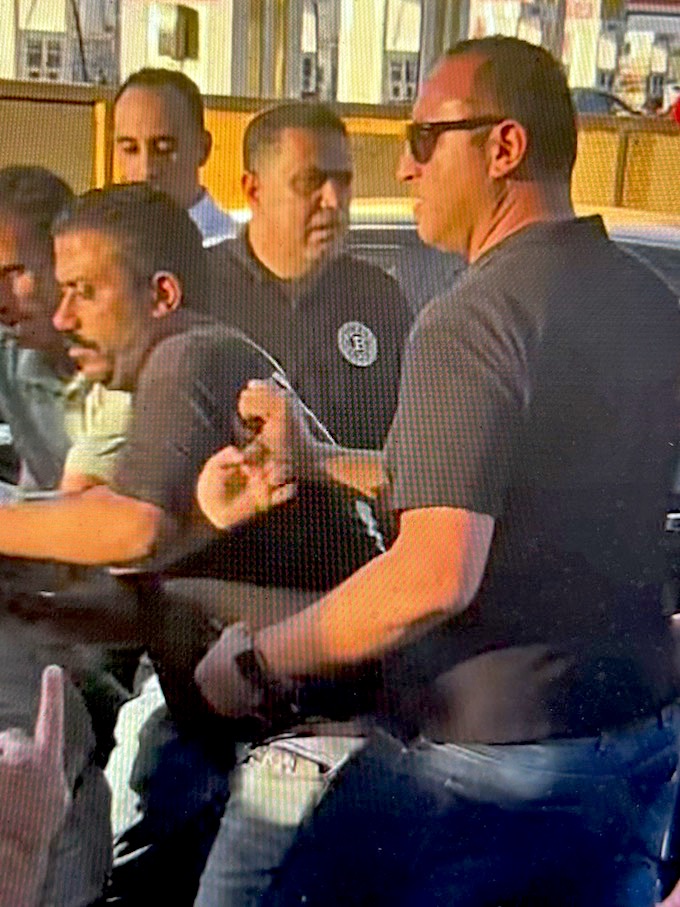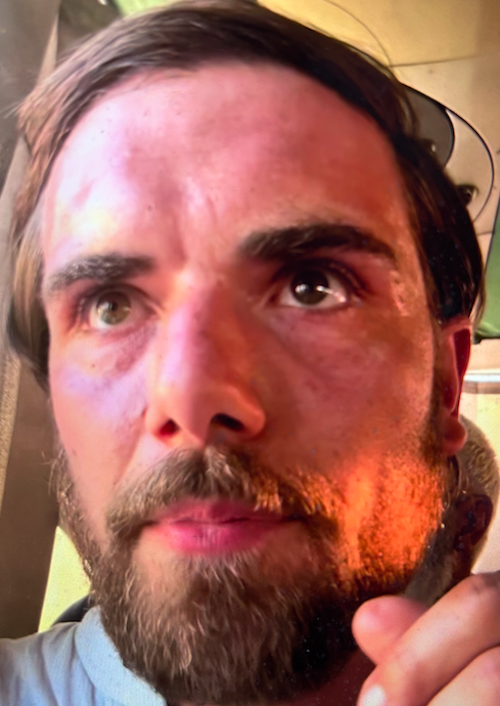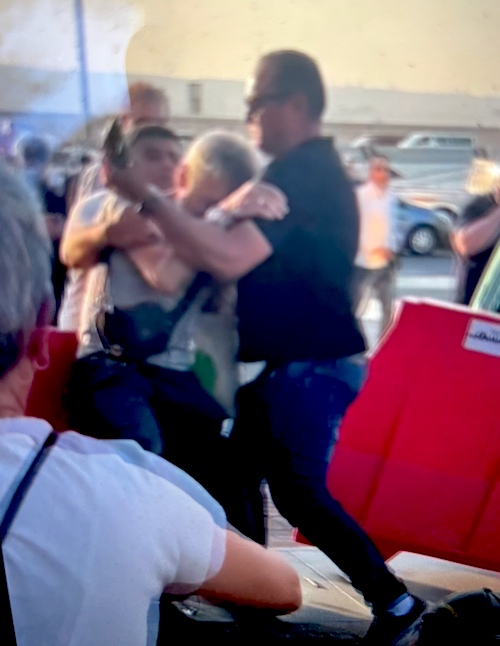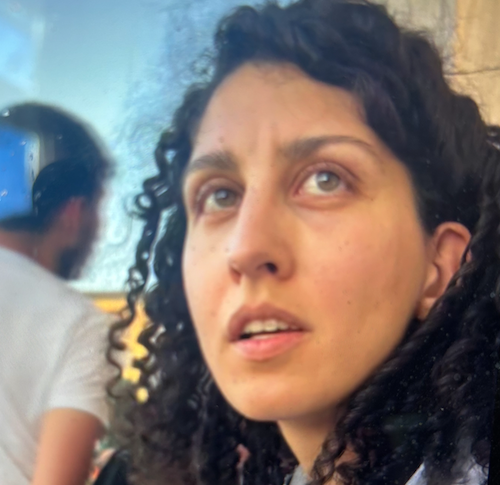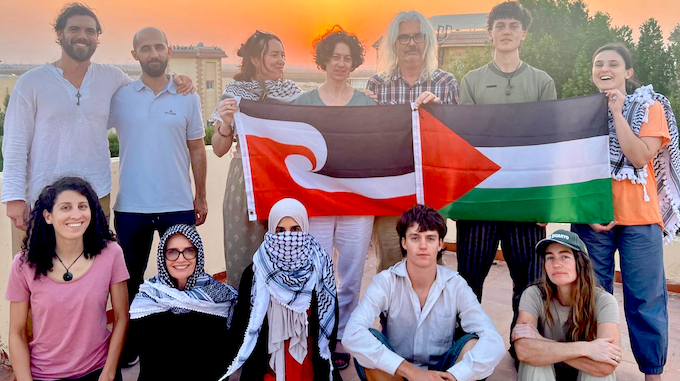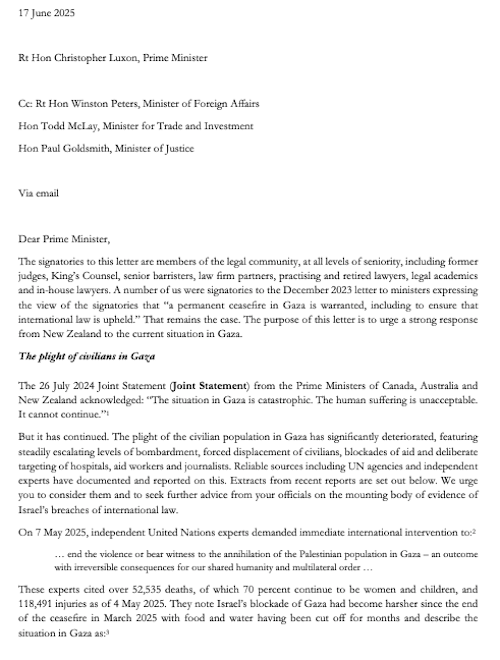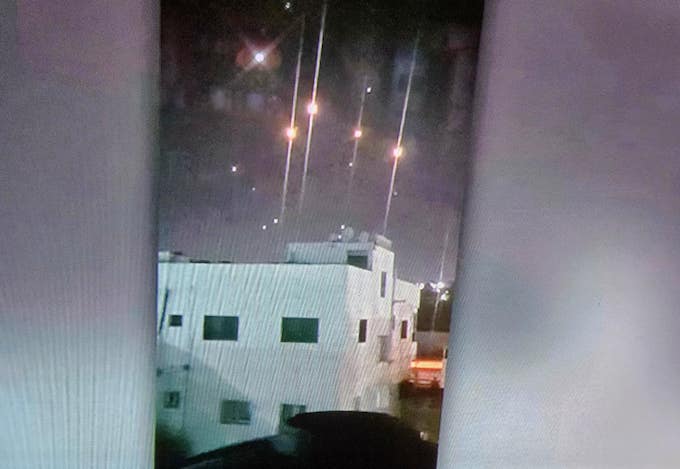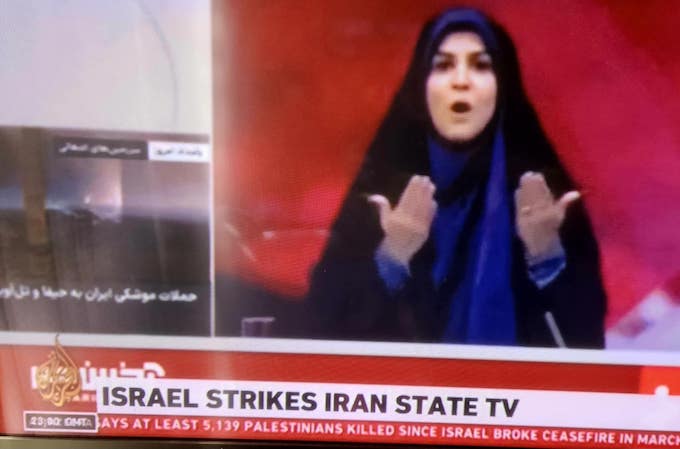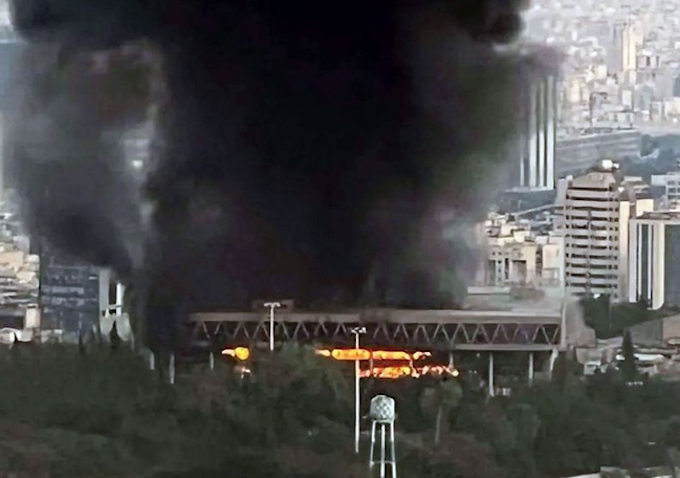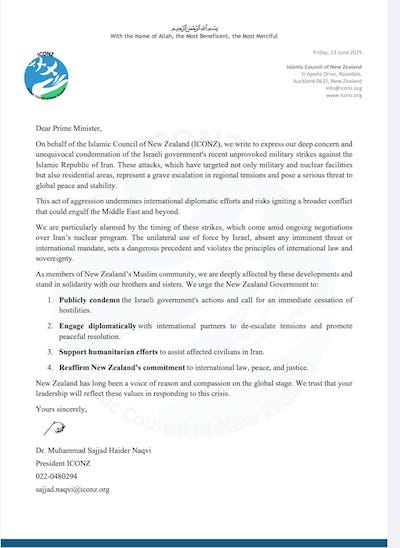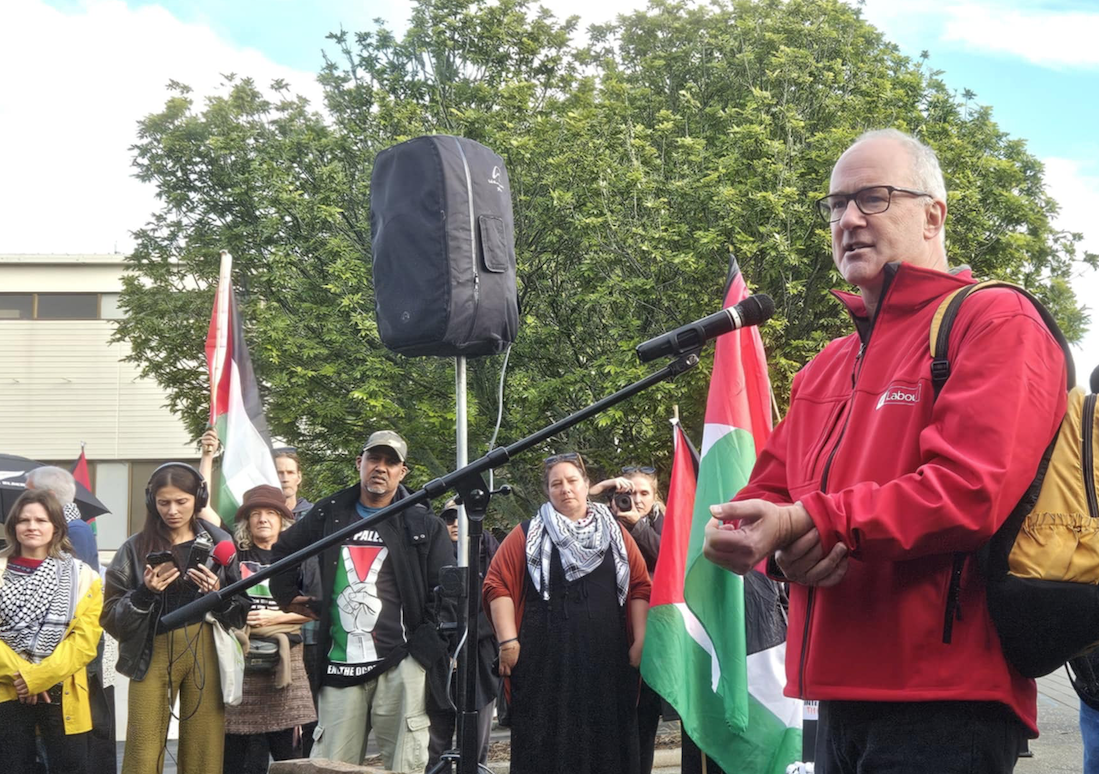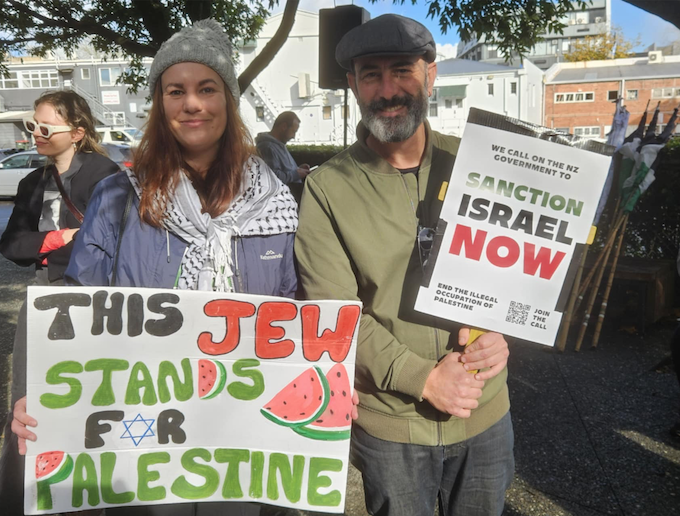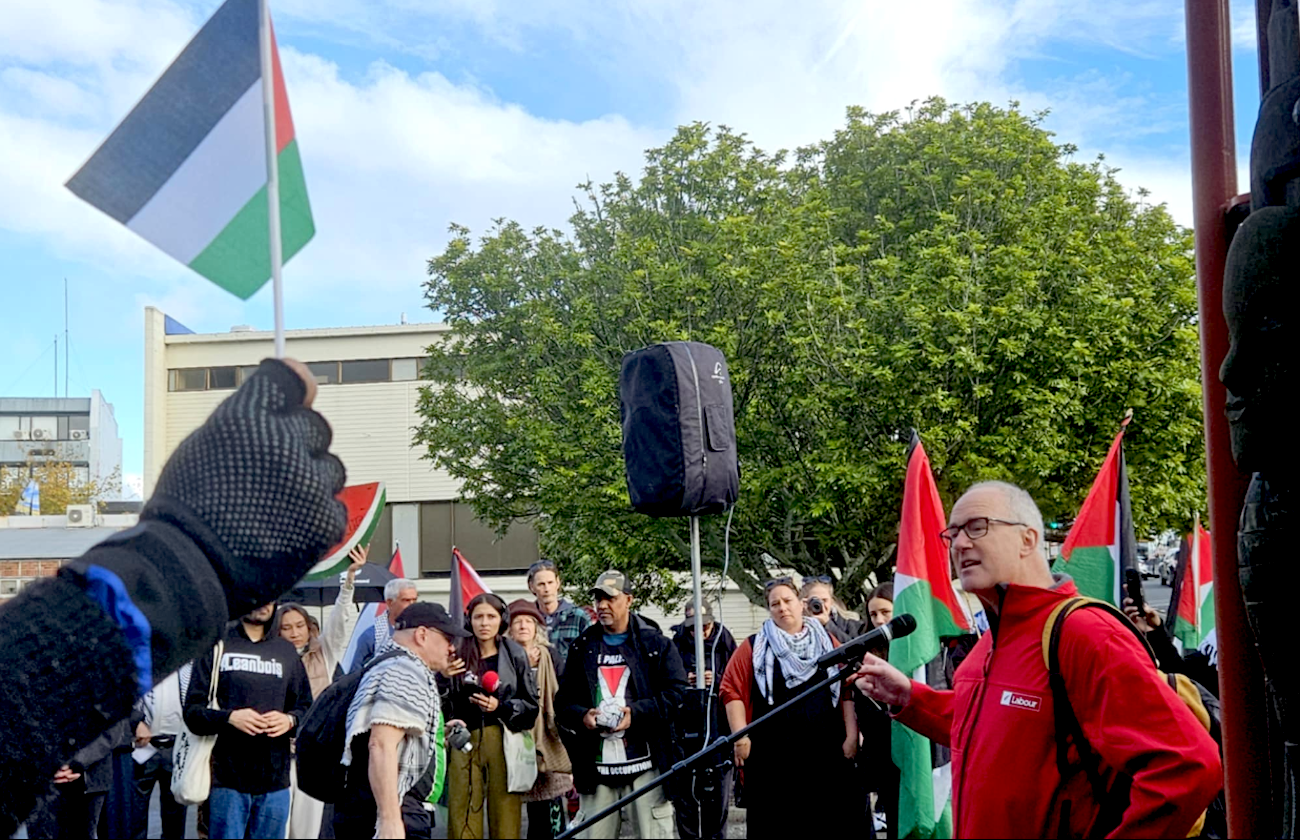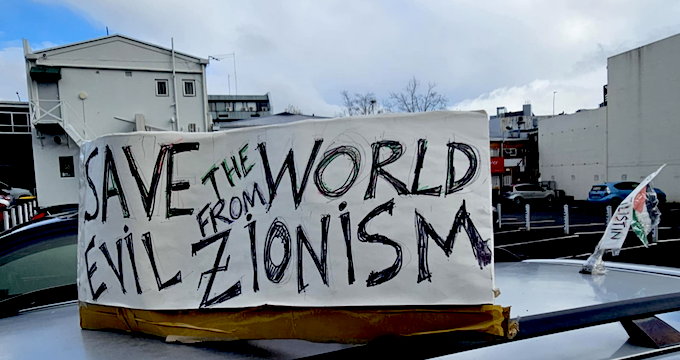ANALYSIS: By Joe Hendren
Had Israel not launched its unprovoked attack on Iran on Friday night, in direct violation of the UN Charter, Iran would now be taking part in the sixth round of negotiations concerning the future of its nuclear programme, meeting with representatives from the United States in Muscat, the capital of Oman.
Israel’s Prime Minister, Benjamin Netanyahu claimed he acted to prevent Iran from building a nuclear bomb, saying Iran had the capacity to build nine nuclear weapons. Israel provided no evidence to back up its claims.
On 25 March 2025, Trump’s own National Director of Intelligence, Tulsi Gabbard, said:
“The IC [Intelligence Community] continues to assess that Iran is not building a nuclear weapon and Supreme Leader Khamenei has not authorised the nuclear weapons programme he suspended in 2003. The IC is monitoring if Tehran decides to reauthorise its nuclear weapons programme”
Even if Iran had the capability to build a bomb, it is quite another thing to have the will to do so.
Any such bomb would need to be tested first, and any such test would be quickly detected by a series of satellites on the lookout for nuclear detonations anywhere on the planet.
It is more likely that Israel launched its attack to stop US and Iranian negotiators from meeting on Sunday.
Only a month ago, Iran’s lead negotiator in the nuclear talks, Ali Shamkhani, told US television that Iran was ready to do a deal. NBC journalist Richard Engel reports:
“Shamkhani said Iran is willing to commit to never having a nuclear weapon, to get rid of its stockpiles of highly enriched uranium, to only enrich to a level needed for civilian use and to allow inspectors in to oversee it all, in exchange for lifting all sanctions immediately. He said Iran would accept that deal tonight.”
Inside Iran as Trump presses for nuclear deal. Video: NBC News
Shamkhani died on Saturday, following injuries he suffered during Israel’s attack on Friday night. It appears that Israel not only opposed a diplomatic solution to the Iran nuclear impasse: Israel killed it directly.
A spokesperson for the Iranian Foreign Ministry, Esmaeil Baghaei, told a news conference in Tehran the talks would be suspended until Israel halts its attacks:
“It is obvious that in such circumstances and until the Zionist regime’s aggression against the Iranian nation stops, it would be meaningless to participate with the party that is the biggest supporter and accomplice of the aggressor.”
On 1 April 2024, Israel launched an airstrike on Iran’s embassy in Syria, killing 16 people, including a woman and her son. The attack violated international norms regarding the protection of diplomatic premises under the Vienna Convention.
Yet the UK, USA and France blocked a United Nations Security Council statement condemning Israel’s actions.
It is worth noting how the The New York Times described the occupation of the US Embassy in November 1979:
“But it is the Ayatollah himself who is doing the devil’s work by inciting and condoning the student invasion of the American and British Embassies in Tehran. This is not just a diplomatic affront; it is a declaration of war on diplomacy itself, on usages and traditions honoured by all nations, however old and new, whatever belief.
“The immunities given a ruler’s emissaries were respected by the kings of Persia during wars with Greece and by the Ayatollah’s spiritual ancestors during the Crusades.”
Now it is Israel conducting a “war on diplomacy itself”, first with the attack on the embassy, followed by Friday’s surprise attack on Iran. Scuppering a diplomatic resolution to the nuclear issue appears to be the aim. To make matters worse, Israel’s recklessness could yet cause a major war.
Trump: Inconsistent and ineffective
In an interview with Time magazine on 22 April 2025, Trump denied he had stopped Israel from attacking Iran’s nuclear sites.
“No, it’s not right. I didn’t stop them. But I didn’t make it comfortable for them, because I think we can make a deal without the attack. I hope we can. It’s possible we’ll have to attack because Iran will not have a nuclear weapon.
“But I didn’t make it comfortable for them, but I didn’t say no. Ultimately I was going to leave that choice to them, but I said I would much prefer a deal than bombs being dropped.”
— US President Donald Trump
In the same interview Trump boasted “I think we’re going to make a deal with Iran. Nobody else could do that.” Except, someone else had already done that — only for Trump to abandon the deal in his first term as president.
In July 2015 Iran signed the Joint Comprehensive Plan of Action (JCPOA) alongside the five permanent members of the United Nations Security Council and the European Union. Iran pledged to curb its nuclear programme for 10-15 years in exchange for the removal of some economic sanctions. The International Atomic Energy Agency (IAEA) also gained access and verification powers.
Iran also agreed to limit uranium enrichment to 3.67 per cent U-235, allowing it to maintain its nuclear power reactors.
Despite clear signs the nuclear deal was working, Donald Trump withdrew from the JCPOA and reinstated sanctions on Iran in November 2018. Despite the unilateral American action, Iran kept to the deal for a time, but in January 2020 Iran declared it would no longer abide by the limitations included in JCPOA but would continue to work with the IAEA.
By pulling out of the deal and reinstating sanctions, the US and Israel effectively created a strong incentive for Iran to resume enriching uranium to higher levels, not for the sake of making a bomb, but as the most obvious means of creating leverage to remove the sanctions.
As a signatory to the Nuclear Non-Proliferation Treaty (NPT) Iran is allowed to enrich uranium for civilian fuel programmes.
Iran’s nuclear programme began in the 1960s with US assistance. Prior to the Islamic Revolution of 1979, Iran was ruled by the brutal dictatorship of the Shah, Mohammad Reza Pahavi.
American corporations saw Iran as a potential market for expansion. During the 1970s the US suggested to the Shah he needed not one but several nuclear reactors to meet Iran’s future electricity needs. In June 1974, the Shah declared that Iran would have nuclear weapons, “without a doubt and sooner than one would think”.
In 2007, I wrote an article for Peace Researcher where I examined US claims that Iran does not need nuclear power because it is sitting on one of the largest gas supplies in the world. One of the most interesting things I discovered while researching the article was the relevance of air pollution, a critical public health concern in Iran.
In 2024, health officials estimated that air pollution is responsible for 40,000 deaths a year in Iran. Deputy Health Minister Alireza Raisi said the “majority of these deaths were due to cardiovascular diseases, strokes, respiratory issues, and cancers”.
Sahimi describes levels of air pollution in Tehran and other major Iranian cities as “catastrophic”, with elementary schools having to close on some days as a result. There was little media coverage of the air pollution issue in relation to Iran’s energy mix then, and I have seen hardly any since.
An energy research project, Advanced Energy Technologies provides a useful summary of electricity production in Iran as it stood in 2023.
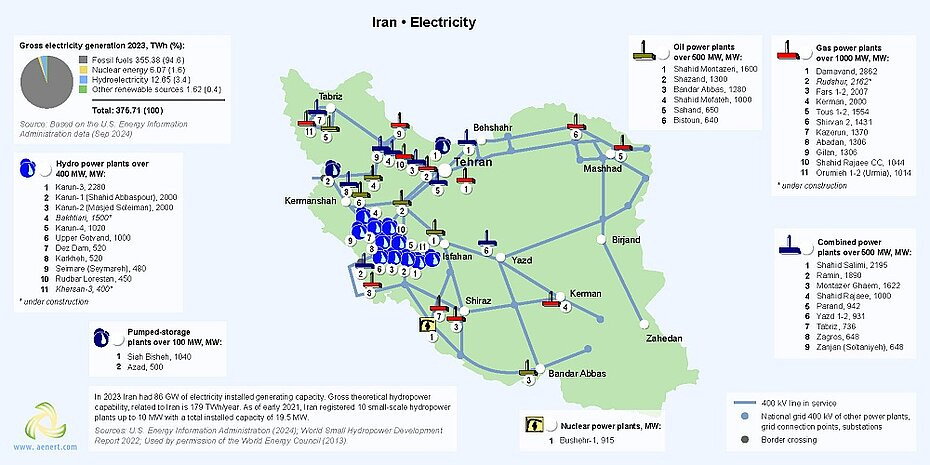
With around 94.6 percent of electricity generation dependent on fossil fuels, there are serious environmental reasons why Iran should not be encouraged to depend on oil and gas for its electricity needs — not to mention the prospect of climate change.
One could also question the safety of nuclear power in one of the most seismically active countries in the world, however it would be fair to ask the same question of countries like Japan, which aims to increase its use of nuclear power to about 20 percent of the country’s total electricity generation by 2040, despite the 2011 Fukushima disaster.
Iranian Foreign Minister Abbas Araghchi stated that Iran’s uranium enrichment programme “must continue”, but the “scope and level may change”. Prior to the talks in Oman, Araghchi highlighted the “constant change” in US positions as a problem.
Trump’s rhetoric on uranium enrichment has shifted repeatedly.
He told Meet the Press on May 4 that “total dismantlement” of the nuclear program is “all I would accept.” He suggested that Iran does not need nuclear energy because of its oil reserves. But on May 7, when asked specifically about allowing Iran to retain a limited enrichment program, Trump said “we haven’t made that decision yet.”
Ali Shamkhani, an adviser to Iranian Supreme Leader Ayatollah Ali Khamenei, said in a May 14 interview with NBC that Iran is ready to sign a deal with the United States and reiterated that Iran is willing to limit uranium enrichment to low levels. He previously suggested in a May 7 post on X that any deal should include a “recognition of Iran’s right to industrial enrichment.”
That recognition, plus the removal of U.S. and international sanctions, “can guarantee a deal,” Shamkhani said.
So with Iran seemingly willing to accept reasonable conditions, why was a deal not reached last month? It appears the US changed its position, and demanded Iran cease all enrichment of uranium, including what Iran needs for its power stations.
One wonders if Zionist lobby groups like AIPAC (American Israel Public Affairs Committee) influenced this decision. One could recall what happened during Benjamin Netanyahu’s first stint as Israel’s Prime Minister (1996-1999) to illustrate the point.
In April 1995 AIPAC published a report titled ‘Comprehensive US Sanctions Against Iran: A Plan for Action’. In 1997 Mohammad Khatami was elected as President of Iran. The following year Khatami expressed regret for the takeover of the US embassy in Tehran in 1979 and denounced terrorism against Israelis, while noting that “supporting peoples who fight for their liberation of their land is not, in my opinion, supporting terrorism”.
The threat of improved relations between Iran and the US sent the Israeli government led by Netanyahu into a panic. The Israeli newspaper Ha’aretz reported that “Israel has expressed concern to Washington of an impending change of policy by the United States towards Iran” adding that Netanyahu “asked AIPAC . . . to act vigorously in Congress to prevent such a policy shift.”
Twenty years ago the Israeli lobby were claiming an Iranian nuclear bomb was imminent. It didn’t happen.
Netanyahu’s Iran nuclear warnings. Video: Al Jazeera
The misguided efforts of Israel and the United States to contain Iran’s use of nuclear technology are not only counterproductive — they risk being a catastrophic failure. If one was going to design a policy to convince Iran nuclear weapons may be needed for its own defence, it is hard to imagine a policy more effective than the one Israel has pursued for the past 30 years.My 2007 Peace Researcher article asked a simple question: ‘Why does Iran want nuclear weapons?’ My introduction could have been written yesterday.
“With all the talk about Iran and the intentions of its nuclear programme it is a shame the West continues to undermine its own position with selective morality and obvious hypocrisy. It seems amazing there can be so much written about this issue, yet so little addresses the obvious question – ‘for what reasons could Iran want nuclear weapons?’.
“As Simon Jenkins (2006) points out, the answer is as simple as looking at a map. ‘I would sleep happier if there were no Iranian bomb but a swamp of hypocrisy separates me from overly protesting it. Iran is a proud country that sits between nuclear Pakistan and India to its east, a nuclear Russia to its north and a nuclear Israel to its west. Adjacent Afghanistan and Iraq are occupied at will by a nuclear America, which backed Saddam Hussein in his 1980 invasion of Iran. How can we say such a country has no right’ to nuclear defence?’”
This week the German Foreign Office reached new heights in hypocrisy with this absurd tweet.
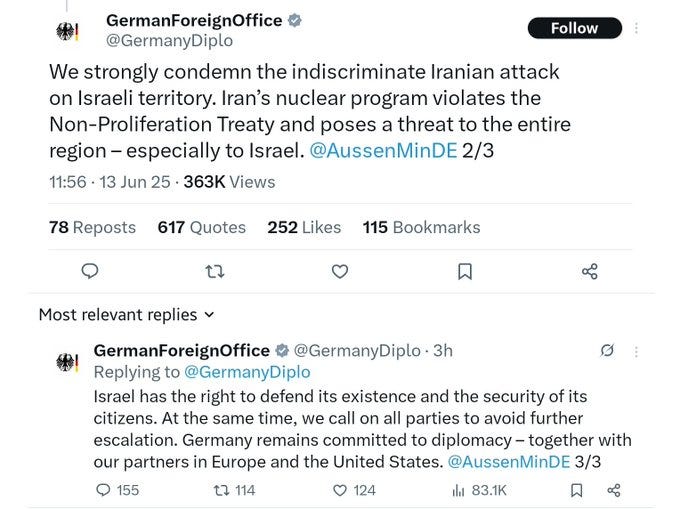
Iran has no nuclear weapons. Israel does. Iran is a signatory to the NPT. Israel is not. Iran allows IAEA inspections. Israel does not.
Starting another war will not make us forget, nor forgive what Israel is doing in Gaza.
From the river to the sea, credibility requires consistency.
I write about New Zealand and international politics, with particular interests in political economy, history, philosophy, transport, and workers’ rights. I don’t like war very much.
Joe Hendren writes about New Zealand and international politics, with particular interests in political economy, history, philosophy, transport, and workers’ rights. Republished with his permission. Read this original article on his Substack account with full references.
This post was originally published on Asia Pacific Report.

